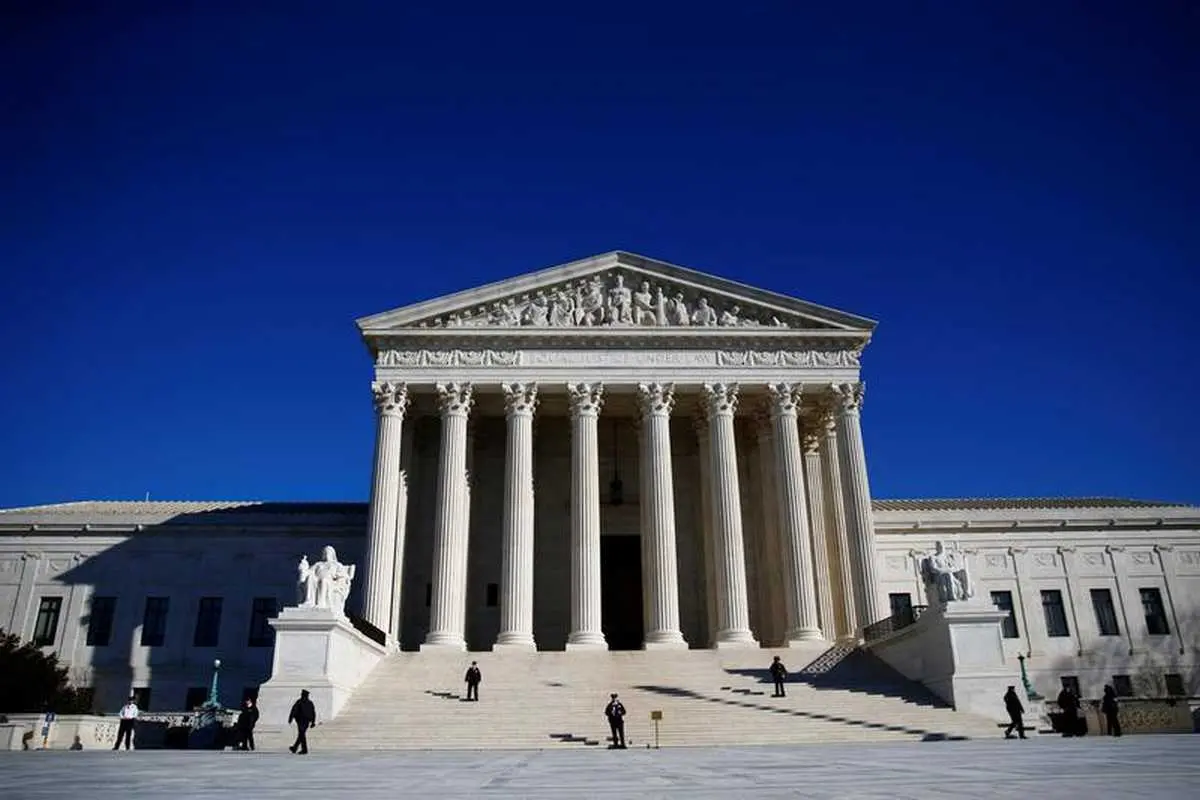PHOTO
WASHINGTON - The U.S. Supreme Court on Friday set up a major showdown over presidential powers, agreeing to decide the legality of President Donald Trump's latest travel ban targeting people from six Muslim-majority countries.
The conservative-majority court is due to hear arguments in April and issue a ruling by the end of June on whether the policy violates federal immigration law or the U.S. Constitution's prohibition on religious discrimination. Trump's policy, announced in September, blocks entry into the United States of most people from Chad, Iran, Libya, Somalia, Syria and Yemen.
The legal fight involves the third version of a contentious policy Trump first sought to implement a week after taking office in January 2017.
The Supreme Court on Dec. 4 signaled it was likely to uphold the ban when, on a 7-2 vote, it let it go into full effect while legal challenges by the state of Hawaii and others continued. Lower courts had partially blocked the ban.
The Republican president has said the policy is needed to protect the United States from terrorism by Islamic militants.
Those challenging the travel ban have argued that it was motivated by Trump's enmity toward Muslims, pressing that point in court with some success by citing statements he made as a candidate and as president.
As a candidate, Trump promised "a total and complete shutdown of Muslims entering the United States." As president, he has rescinded protections for hundreds of thousands of immigrants who were brought into the country illegally as children, sought to ramp up deportations and pursued new measures restricting legal immigration.
(Reporting by Lawrence Hurley; Editing by Will Dunham) ((lawrence.hurley@thomsonreuters.com; Twitter: @lawrencehurley; +1 202-809-3080))
The conservative-majority court is due to hear arguments in April and issue a ruling by the end of June on whether the policy violates federal immigration law or the U.S. Constitution's prohibition on religious discrimination. Trump's policy, announced in September, blocks entry into the United States of most people from Chad, Iran, Libya, Somalia, Syria and Yemen.
The legal fight involves the third version of a contentious policy Trump first sought to implement a week after taking office in January 2017.
The Supreme Court on Dec. 4 signaled it was likely to uphold the ban when, on a 7-2 vote, it let it go into full effect while legal challenges by the state of Hawaii and others continued. Lower courts had partially blocked the ban.
The Republican president has said the policy is needed to protect the United States from terrorism by Islamic militants.
Those challenging the travel ban have argued that it was motivated by Trump's enmity toward Muslims, pressing that point in court with some success by citing statements he made as a candidate and as president.
As a candidate, Trump promised "a total and complete shutdown of Muslims entering the United States." As president, he has rescinded protections for hundreds of thousands of immigrants who were brought into the country illegally as children, sought to ramp up deportations and pursued new measures restricting legal immigration.
(Reporting by Lawrence Hurley; Editing by Will Dunham) ((lawrence.hurley@thomsonreuters.com; Twitter: @lawrencehurley; +1 202-809-3080))





















